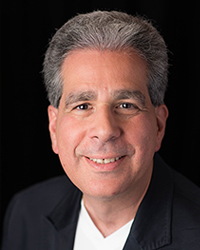
Even as applications rose for Executive MBA programs last year, actual enrollment fell slightly, according to a survey of business schools by the Executive MBA Council.
The group, in a Jan. 25th statement, said the average class size dipped to 44 students in 2021 from 47 in 2020 even as applications increased by 17%. The counter intuitive result was likely caused by two trends: increasing competition from online MBA programs that offer greater flexibility and a strong economy which opened up more opportunities at work without the need for a graduate degree.
“The average number of applications received per program increased by 17% in 2021 compared to 2020,” aid Michael Desiderio, executive director of the Executive MBA Council, in a statement. “Along with this increase, inquiries rose 3 percent in 2021 compared to 2020. Despite the uncertainty of the global pandemic, interest in EMBA programs remains strong,” says Desiderio. That said, more inquiries and applications didn’t necessarily translate into increased enrollments as average class size dipped a bit from 47 in 2020 to 44 in 2021.”
MORE EMBA PROGRAMS NOW OFFER EXECUTIVE COACHING AND SCHOLARSHIP SUPPORT
The survey also found that:
- Executive coaching continues to be an integral part of EMBA Programs: 88.1% of EMBA Programs offered executive coaching in 2021, up from 83.3% in 2020.
- The percentage of students who received full financial sponsorship dipped, while self-sponsorship increased slightly. The percentage of self-funded students rose from 53.8% in 2020 to 56.2% in 2021, and 15.2% of students received full sponsorship in 2021, compared to 17.6% in 2020.
- Almost 60% of programs offer scholarships or fellowships, and almost one-third of EMBA students receive scholarships or fellowships.
- The percentage of female enrollment in EMBA programs is at its highest ever – now reaching 33% in 2021, compared to 30 percent in 2017.
“While there is work to be done, EMBA programs are chipping away each year at closing the gender gap,” says Desiderio.
NEARLY 90% OF EMBA PROGRAMS NOW OFFER SOME FORM OF ONLINE LEARNING
Unsurprisingly given the pandemic and more competition from online MBA alternatives, the group found that Executive MBA programs are making greater use of technology and format adaptations in their programs. The survey found that 88.6% of schools now reporting offering some form of distance learning compared to 73.9% in 2020 and just 55.3% in 2019.
“Clearly the global pandemic is driving acceleration in the use of technology, and is evidence of how adaptable our member programs are,” added Desiderio. With Covid cases surging and disrupting just about everything from work to personal life, of course, business schools had little choice but to adapt.

Michael Desiderio, executive director of the Executive MBA Council
Some 47.6% of the responding programs reported changes in program delivery last year, compared to 30.3% in 2020. The biggest changes result from online and virtual or blended and hybrid additions, according to the survey.
Programs have expanded their use of technology in other ways: Almost four out of five EMBA programs in the survey purchased cases electronically, and the purchase of electronic books rose from 30.7% in 2020 to 35.6% in 2021. Programs that use other electronic course materials also increased from 33.5% in 2020 to 36% in 2021.
The EMBA Council currently includes nearly 200 colleges and universities that administer close to 300 programs in more than 30 countries worldwide. Each year, EMBAC conducts a Membership Program Survey using the current methodology annually since 2003. In 2021, the survey was conducted by Percept Research, held from June 22 to Aug. 29, 2021, and was completed by approximately 84% of the EMBA member programs.
DON’T MISS: 5 BIGGEST REGRETS OF EXECUTIVE MBAS or 15 EXECUTIVE MBA PROFESSORS WHO MADE A DIFFERENCE IN 2021





Questions about this article? Email us or leave a comment below.